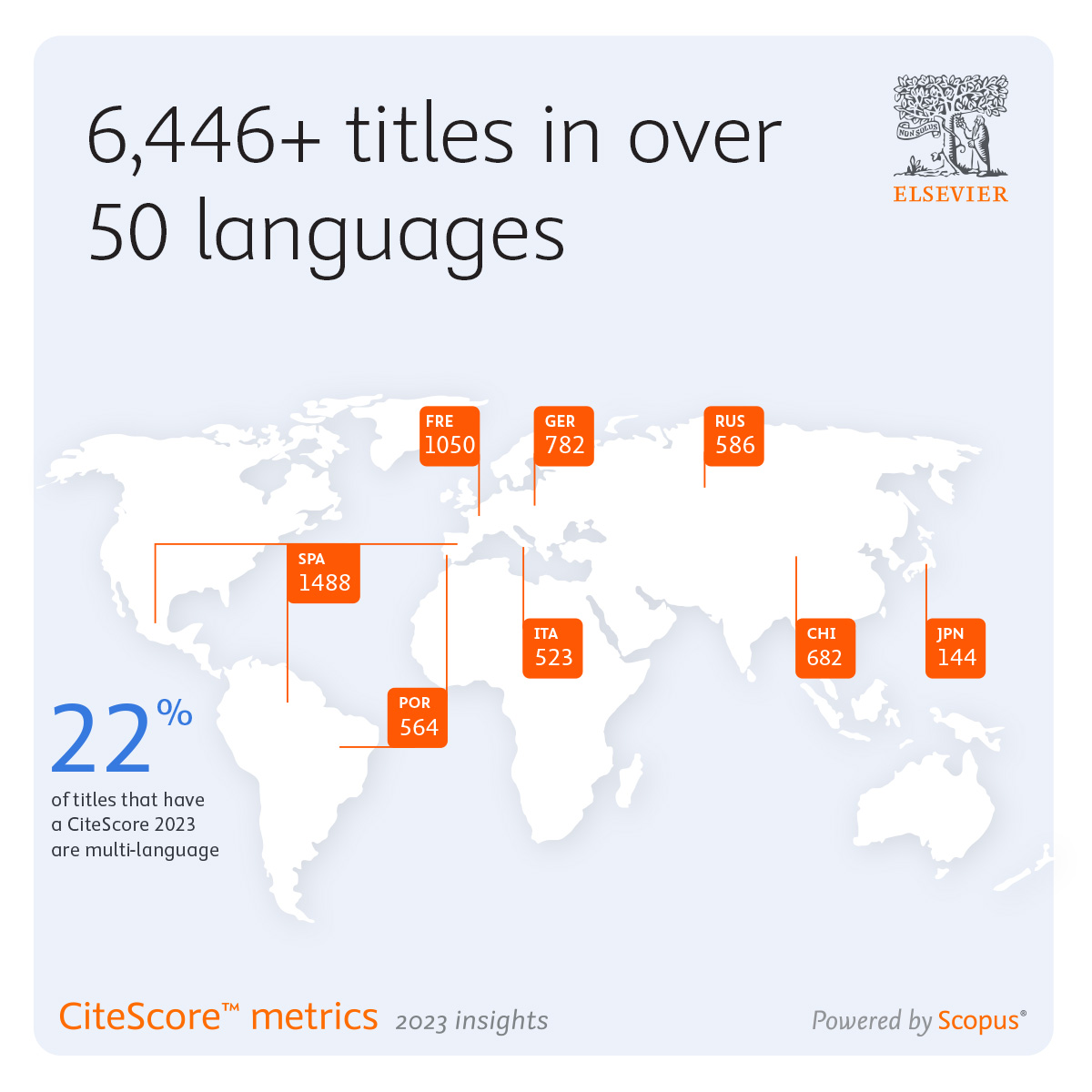We are thrilled to announce the upcoming release of CiteScore 2023, a powerful metric that provides transparent insights into journal citation impact. You can access it for free on the Scopus preview page.
Developed by the International Center for the Study of Research (ICSR) team, CiteScore offers a fair and comprehensive assessment of a journal’s research-based contributions. CiteScore empowers researchers, librarians, publishers, editors and research offices to make well informed decisions on where to publish and publication strategies.
CiteScore is a metric calculated for active titles within Scopus, with publications rigorously screened and selected by our independent Content Selection and Advisory Board (CSAB). It leverages Scopus’s comprehensive dataset to provide annual values and monthly tracking, allowing users to identify the most relevant journals and define their publication strategies.

CiteScore offers several advantages over traditional metrics like the Journal Impact Factor (JIF):

Elsevier is committed to the responsible use of metrics and has signed the Leiden Manifesto and the principles of the San Francisco Declaration on Research Assessment (DORA). CiteScore is part of this effort to promote a range of metrics for academic and government research.
The CiteScore methodology reflects citation impact of a journal’s research-based contributions with greater stability and consistency in the time periods used. It also comprehensive, current, clear and free. It was developed by the International Center for the Study of Research (ICSR) team, based on extensive market research. These are some of the ways it leverages the inherent weaknesses of the JIF as a journal-level citation metric:

CiteScore caters to a wide range of personas and use cases: